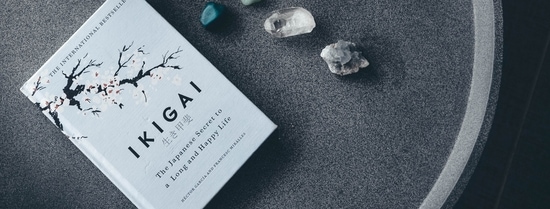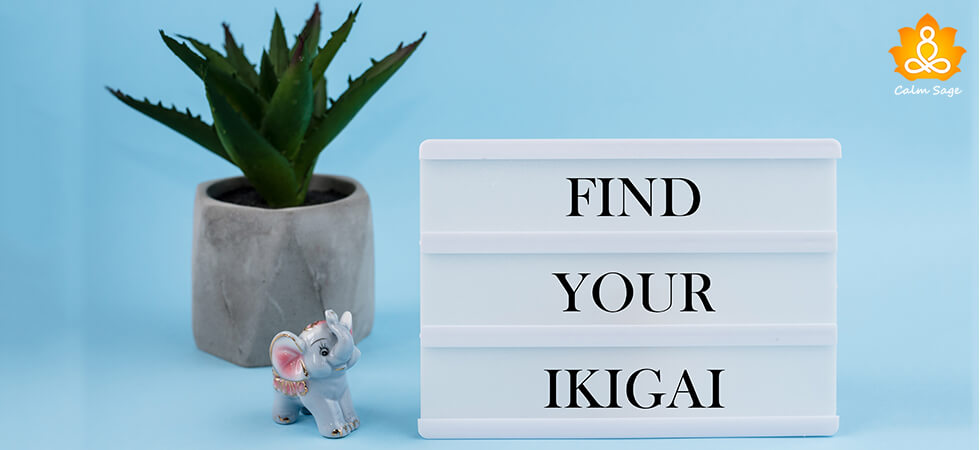Finding Your Ikigai: How to Discover Your True Passion and Purpose in Life
Do you ever feel like you're just going through the motions in life? Do you find yourself wondering what your true purpose is or what you're really passionate about? If so, you're not alone. Many people struggle with these questions, and the Japanese concept of Ikigai offers a helpful framework for discovering your true purpose and passion in life.
Ikigai is a Japanese term that roughly translates to "a reason for being."
So how do
you go about finding your Ikigai? Here are the four steps to get started:
1. Identify
your passions and interests
The first
step in discovering your Ikigai is to identify what you love. What are your
passions and interests? What activities bring you joy and fulfillment? What do
you love to do in your free time? What hobbies or interests have you pursued
throughout your life? These are all clues to what you might be passionate
about. Make a list of these things and
try to identify any common themes or patterns.
It's also
helpful to consider what you would do if money were no object. If you didn't
have to worry about making a living, what would you spend your time doing? This
can help you tap into activities or interests that you might not have pursued
otherwise.
Another
approach is to think about what activities or interests energize you, rather
than drain you. When you're engaged in these activities, time seems to fly by
and you feel a sense of flow or "being in the zone." These are signs
that you're tapping into something that you're truly passionate about.
It's
important to approach this step with an open mind and a willingness to explore.
Don't worry about whether your passions or interests seem practical or
realistic – the point is to identify what truly brings you joy and fulfillment.
Once you have a list of potential passions and interests, you can move on to
the next step of identifying your skills and strengths, and looking for areas
where your passions and strengths overlap.
2. Assess your
skills and strengths
Next,
consider what you are good at. What are your strengths and skills? What do
people often come to you for help with? This can include both hard skills (such
as technical or analytical abilities) and soft skills (such as communication or
problem-solving). You can also consider your natural inclinations or
personality traits, such as being a good listener or having a knack for creative
thinking.
Make a list of these things and try to identify any areas where your passions and strengths overlap. Here are some examples of skills and strengths that might be relevant to discovering your Ikigai:
- Writing or storytelling
- Public speaking or presenting
- Analyzing data or solving complex problems
- Playing a musical instrument or singing
- Cooking or baking
- Teaching or coaching
- Graphic design or visual arts
- Sales or marketing
- Listening or providing emotional support
- Physical fitness or athletic ability
As you make your list, try to be as comprehensive as possible. Don't discount any skills or strengths that might seem minor or unrelated to your interests – sometimes the most unexpected combinations can lead to a fulfilling path.
3. Consider
what the world needs
Another key
element of Ikigai is considering what the world needs. What are some of the
biggest problems facing society today? How can you use your passions and skills
to make a positive impact on the world?
You can start by looking at the current issues facing society and the
environment. This can include issues such as climate change, social justice,
access to education or healthcare, or economic inequality. Think about the
issues that resonate with you the most and consider how your passions and
skills could be used to contribute to solutions.
Here are some examples of how you might apply your passions, skills, and strengths to address societal or environmental needs.
- If you're passionate about environmental sustainability and have skills in engineering or design, you might work on developing renewable energy technologies or designing sustainable infrastructure.
- If you're passionate about social justice and have skills in communication or organizing, you might work on advocacy campaigns or community organizing initiatives to address issues such as racial or gender inequality.
- If you're passionate about education and have skills in teaching or curriculum development, you might work on improving access to education for underserved communities or developing innovative educational technologies.
Make a list of potential ways you could contribute to society and consider how you could make a difference.
4. Explore potential career paths
Finally,
think about what you can be paid for. This doesn't necessarily mean choosing a
career solely for the paycheck, but rather finding a way to combine your
passions, skills, and societal needs in a way that can provide financial
stability. Explore potential career paths that align with your Ikigai and
consider how you could make a living doing something you love and find
fulfilling.
One way to
explore potential career paths is to conduct research and informational
interviews. Start by researching companies or organizations that align with
your areas of interest and explore the types of jobs that they offer. You can
also network with professionals in your desired field and set up informational
interviews to learn more about their career paths and the skills and
experiences required for success.
You may also consider pursuing additional education or training to develop your skills in a particular area. This can help you gain the knowledge and expertise needed to pursue a career in your chosen field. For example, if you're interested in sustainability and environmental issues, you might pursue a degree in environmental science or sustainability management.
It's also important to consider the lifestyle and work environment that will be most fulfilling for you. Do you prefer working independently or as part of a team? Do you enjoy working in a fast-paced environment or a more relaxed setting? Consider these factors as you explore potential career paths.
Remember, it's okay if your ideal career path doesn't exist yet or if it takes time to find the right fit. Your Ikigai is a lifelong journey, and it's important to stay open to new opportunities and be willing to pivot as needed.
Once you have identified these four elements, it's time to start looking for where they intersect. To find these intersections, start by looking for common themes or areas of overlap between your passions, skills, strengths, and the needs of the world. For example, if you have a passion for writing, a skill in communication, a strength in creativity, and you've identified a need in the world for improved access to education, you might look for ways to use your writing and communication skills to create educational materials that inspire creativity and innovation.
Another approach is to think about how you can combine your passions, skills, and strengths in unique and innovative ways. For example, if you have a passion for cooking, a skill in business management, and a strength in problem-solving, you might consider starting your own sustainable food business that addresses issues such as food waste and environmental sustainability.
The following table is a example of what you can come up with using the four questions.
It's important to remember that discovering your Ikigai is a journey, not a destination. It may take time to find the right balance between these four elements, and your Ikigai may evolve over time as you gain new experiences and insights. But by taking the time to reflect on what you love, what you are good at, what the world needs, and what you can be paid for, you can begin to uncover your true purpose and passion in life.
In
conclusion, the concept of Ikigai offers a helpful framework for discovering
your true purpose and passion in life. By identifying what you love, what you
are good at, what the world needs, and what you can be paid for, you can start
to find the intersection of these elements and uncover your Ikigai. Remember to
be patient with yourself and enjoy the journey of discovering your true purpose
in life.
Let's try out the Ikigai Test as follows:




Comments
Post a Comment